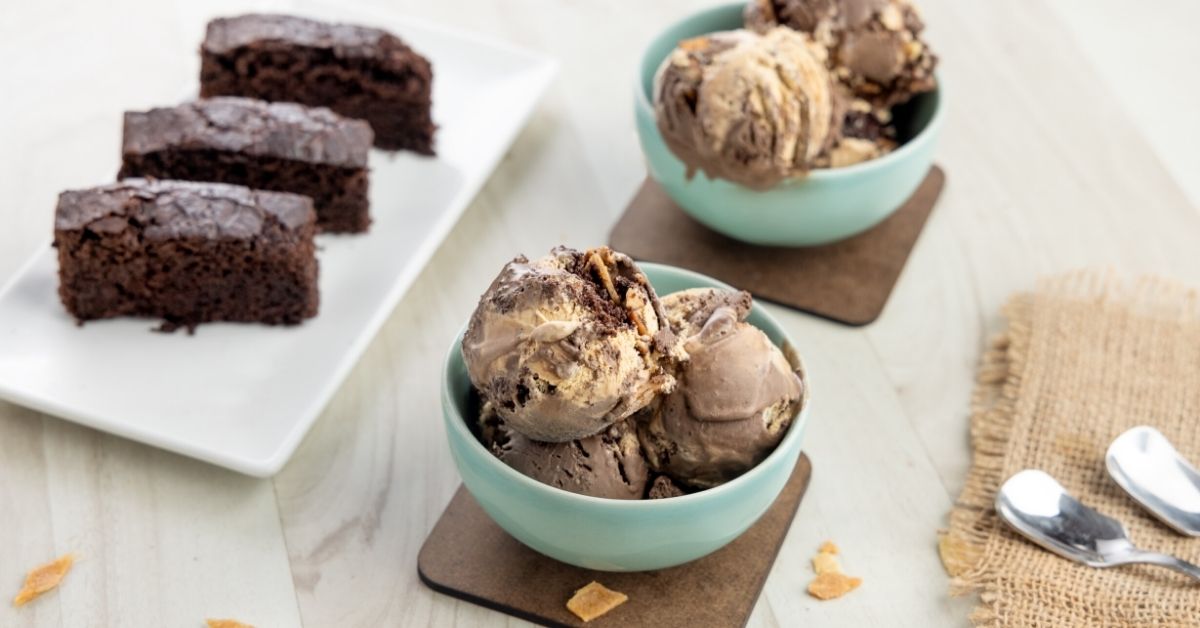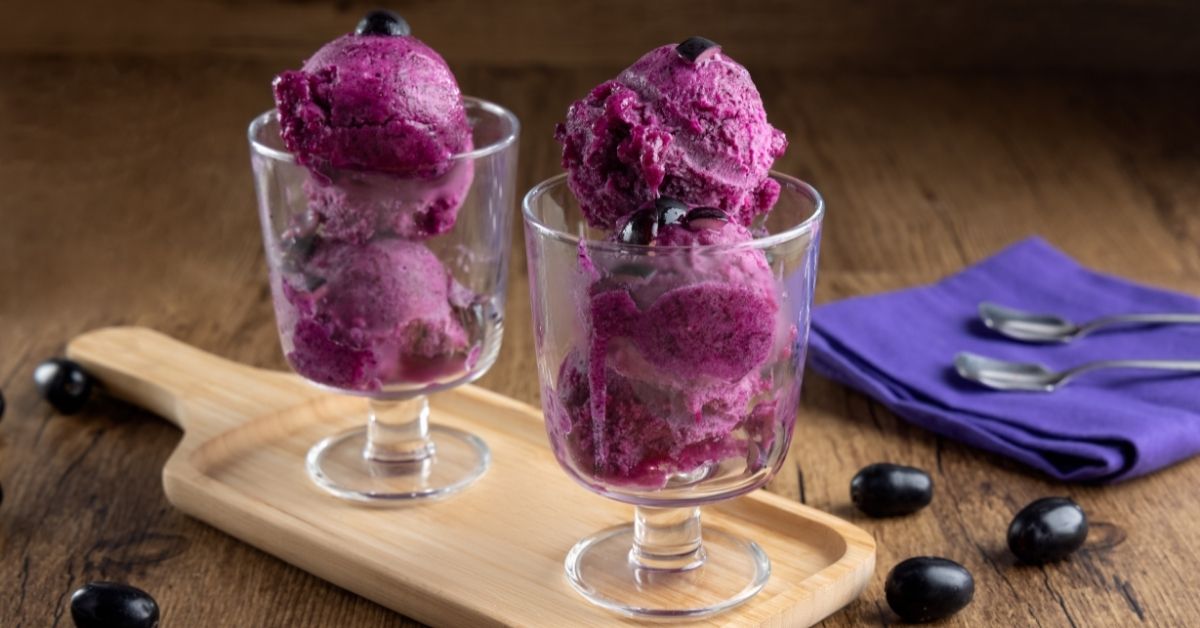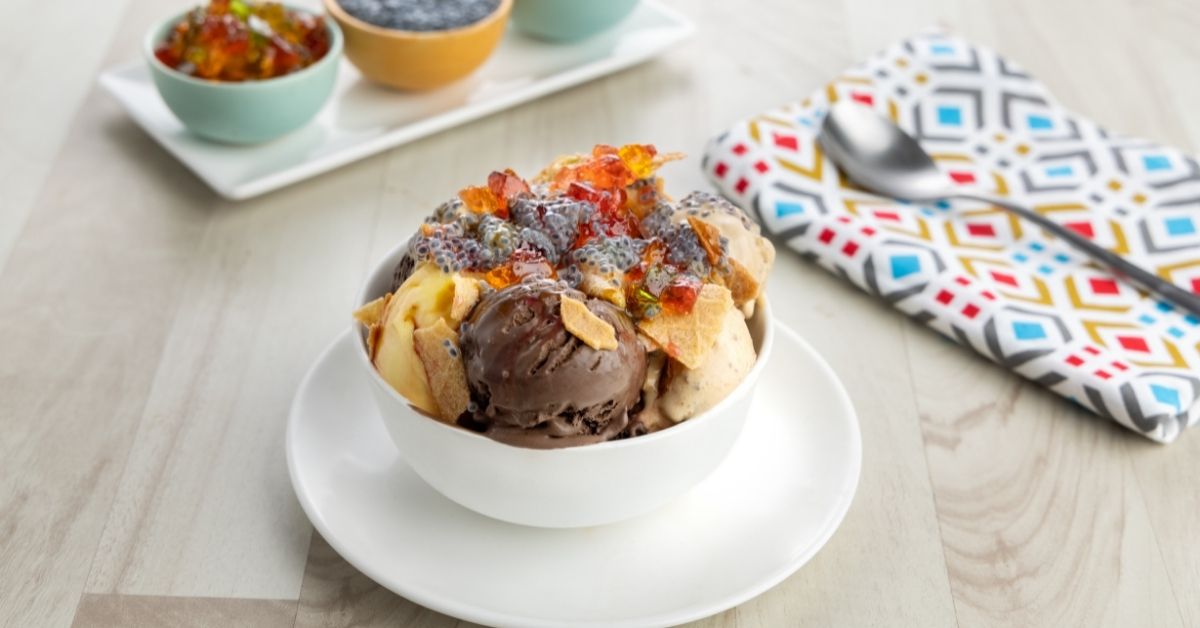Among the millions displaced during the Partition of India was a man named Giani Gurcharan Singh, who moved from Lyallpur in Pakistan and settled as a refugee in Delhi’s Fatehpuri, Chandni Chowk.
He left behind his life’s earnings and memories of his homeland behind, but carried with him his skills and experience in making traditional sweets and desserts. Little did he know that these skills would not only help him survive his new life, but also spawn a multi-crore business and become Delhi’s most iconic ice cream brand – Giani.
The family owes their success to all the traditional recipes Giani adopted to set up a small shop that sold rabri falooda, gajar and moong dal halwa. These items continue to feature among the list of shakes, ice-creams, sundaes, cold stone ice-cream, waffle ice-cream and gelatos that the store offers today.
“My grandfather used to run a sweet shop back in Pakistan. After he arrived in India, he set up a small store in Delhi to make and sell rabri falooda, as well as mango and pineapple shakes, among others. The business was established around 1951-52, and officially registered in 1956,” Taranjeet, the third-generation owner of Giani, tells The Better India.
“These recipes introduced by my grandfather have remained unchanged as a way of expressing gratitude to him for the work he has done,” the 43-year-old says.
Adored by generations

Taranjeet says his grandfather made all the desserts by hand and used quality ingredients. “People living in the locality and passers-by loved the taste, and the business earned the name ‘Giani Di Hatti’, which loosely means Giani’s Shop,” he adds.
The store was located in a wholesale market area, and frequent visitors included the lower-middle and middle-class, so prices always remained cheap. Giani’s became so famous that even personalities such as Mohammad Rafi and Raj Kapoor, alongside ministers, made it their go-to to fulfil their sweet cravings.
“In 1970, my father Gurbachan, Giani’s eldest son, joined the business. As the number of orders started increasing, we needed to buy a second-hand ice cream freezer and other equipment for storage and to keep up with production,” Taranjeet says, adding, “My grandfather had started the business with less investment to minimise the cost of the desserts, which were always handmade. But an increase in sales meant we had to move towards mechanisation.”
Taranjeet joined the business in the ‘90s and decided to expand outside the commercial market area. “The motive was to reach customers in residential localities and cater to a different demographic. We opened our first outlet in Rajouri Garden to cater to families and the youth. Apart from offering traditional desserts like falooda, halwa and shakes, we now included ice-creams. It helped us reach the younger generation, as they preferred ice-creams over traditional desserts,” he explains.
He adds that the flavours and types of ice-creams continued to increase and now include over 100 varieties. “Over time, customers’ habits changed from treating ice cream as a dessert to preferring it after work, during socialising, and even for fun,” he says.
“We have a range of sugarless ice-creams with no added sugar, protein ice-creams, low-fat ice-creams and gelatos. The high-tech equipment comes from the USA and Italy. We can confidently say that our desserts are world-class. However, the rates have remained affordable throughout,” he adds.

He also says that some of the most popular desserts are the Giani Special Ice Cream, Belgian Chocolate, Kuch Nahi Sundae, Brownie, Black Forest, Hot Chocolate Fudge, ice cream, cakes and kulfis.
“The older generation still prefers the mango shakes, rabri falooda and the seasonal desi ghee gajar halwa, while the younger generation experiments with a wide range of flavours. All the products are pure vegetarian. The wide range of products caters to all age groups. There is something for everybody,” he notes.
Similar sentiments resonate among the customers who prefer Giani ice cream over other major brands.
Divya Sethu, a resident of Delhi, says, “My school friends and I have a tradition where we order lots of Giani ice cream every time we meet. It’s the perfect way to end your meals.”
She adds, “If you compare it with other global brands, it’s so much cheaper, but the taste is equally great. Their Belgian Chocolate Ice Cream is to die for.”
Taranjeet says it’s this affordability that has worked as the business’s USP for years. “We like to keep the prices middle-class friendly,” he says.
‘A legacy built on honesty’
Taranjeet says the company has 40 outlets across Delhi, and has a presence through the franchisee model in other cities including Bengaluru, Mumbai and six others, totalling 100 stores across India. “We plan to reach Uttar Pradesh, Haryana, Odisha and Uttarakhand by December 2021,” he adds.
In the mid-2000s, the family split the business, where Taranjeet took over the reins of the operations at Giani, while his uncle opened a new entity by the name ‘Giani’s Ice Cream’. “It was a mutual decision, and we maintain healthy competition. It is evident as many of our outlets are opposite or next to one another. There are no complaints,” he says.

Taranjeet notes that understanding the market pulse and changing dynamics is of utmost importance. “When the COVID-19 pandemic began, we changed the packaging and made it tamper-proof for hygiene and health safety,” he says.
He adds that a major challenge during this time was that the customer footfall decreased from 90% to 10%. “But our online orders increased, and we had to step up at the technical end. The business model changed, but customers preferred ordering in, as the brand is known for its quality, safety and hygiene,” he says, adding that social media became a powerful tool to connect with customers during the pandemic.
Speaking about the secret tips of running a successful business, Taranjeet says that ethics are the most important. “Honesty should sustain in the business with customers, and they should always receive value for money. Maintaining quality, hygiene, and constantly innovating are the three pillars on which my grandfather built the business, and they remain our foundation as well,” he says.
Taranjeet adds, “My grandfather planted a sapling 60 years ago, which has grown into a fruit-bearing tree. My job is to take good care of it and continue his legacy.”
Edited by Divya Sethu
No comments:
Post a Comment